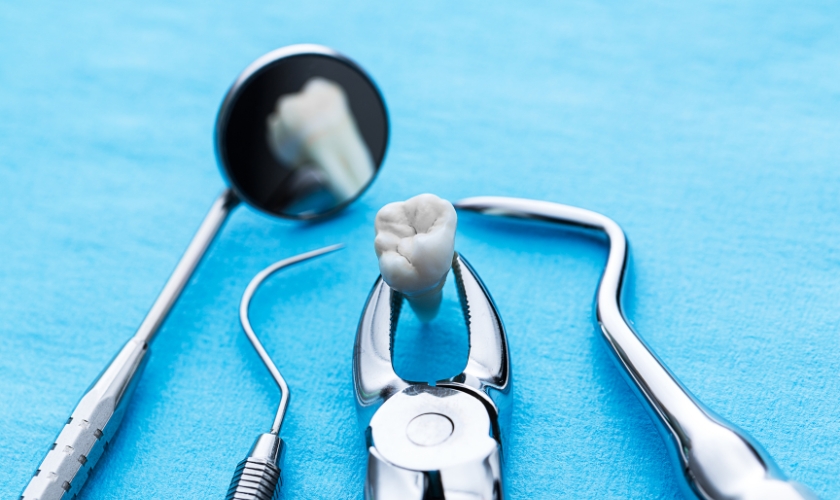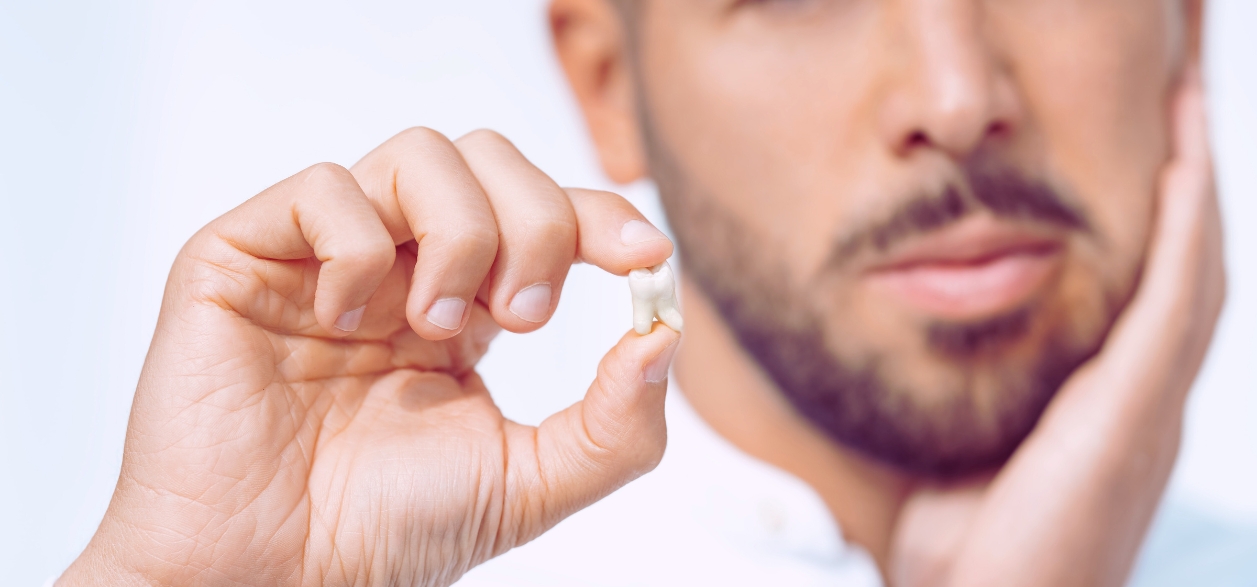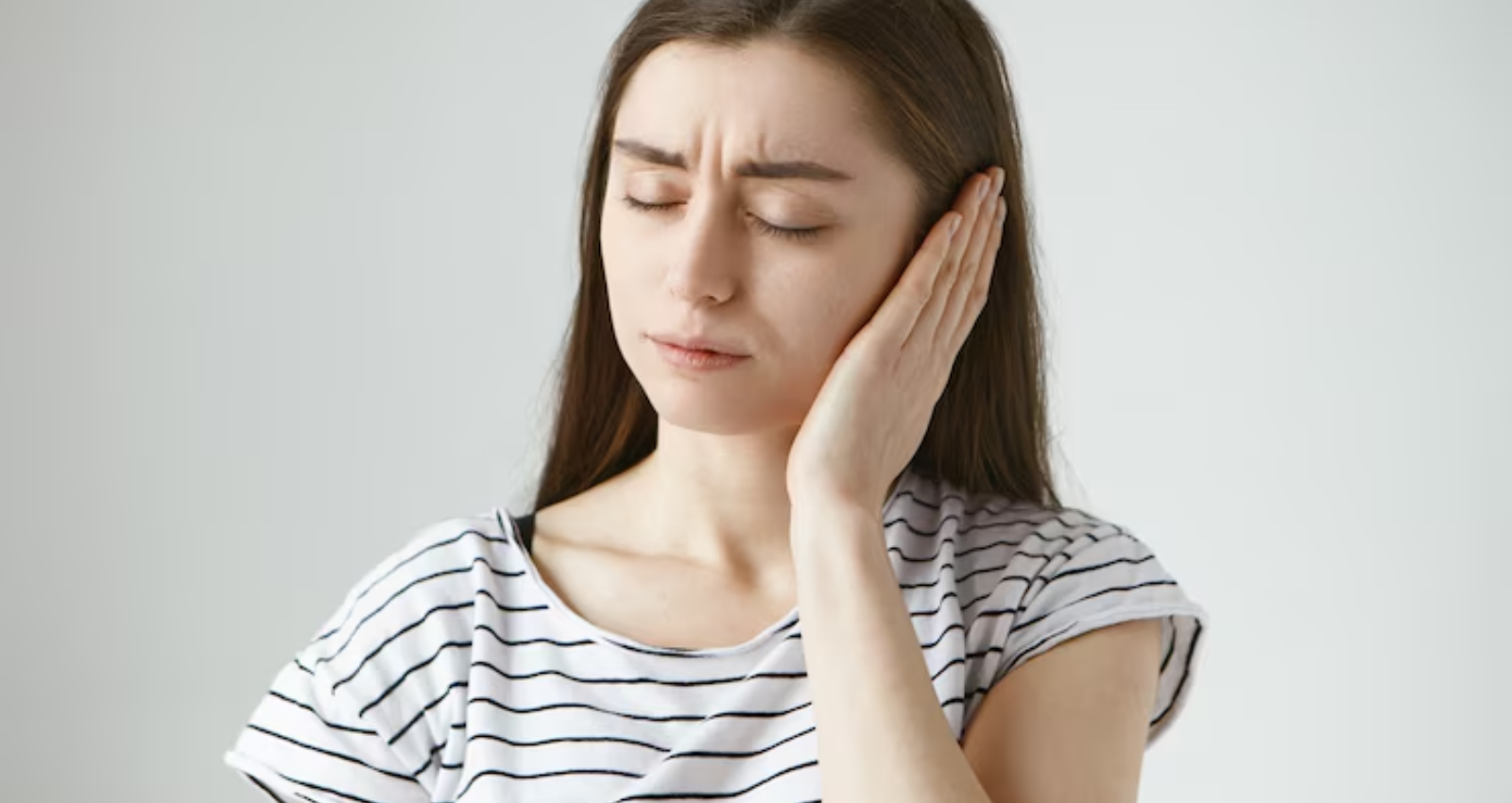
After a tooth extraction, it’s important to follow your dentist’s instructions for a smooth and speedy recovery. One common question that arises is whether it’s okay to smoke after the procedure. In this blog post, we’ll explore the effects of Smoking on the healing process after tooth extraction and guide when it may be safe to resume Smoking.
The Risks of Smoking After Tooth Extraction
Smoking after a tooth extraction throws a wrench into your body’s natural healing process, opening the door to a number of complications. Here’s a breakdown of why it’s best to butt out for a while:
Blood Clot Blues
After a tooth is removed, a blood clot forms in the socket to stop bleeding and kickstart healing. Smoking, with its intense suction action, can dislodge this clot. Exposing the underlying bone and nerves leads to a condition called dry socket, which is notorious for causing intense throbbing pain, bad breath, and a slowed healing process.
Healing on Hold
Smoking disrupts the delicate dance of healing. Nicotine, a major culprit in cigarettes, narrows blood vessels. This restricts the flow of oxygen and vital nutrients to the extraction site, hindering the body’s ability to repair the wound and build new bone tissue. The result? A longer and potentially more uncomfortable recovery.
Infection Invitation
Smoking weakens your immune system’s ability to fight off bacteria. This, combined with the exposed bone and nerves in a dry socket, creates a prime breeding ground for infection. Dental infections can be quite painful and require additional treatment with antibiotics.
Lingering Pain
The discomfort after a tooth extraction is normal, but Smoking can intensify and prolong the pain. The restricted blood flow caused by nicotine can hinder the delivery of pain-relieving substances to the area, making you feel worse for longer.
Impeded Bone Growth
In some cases, tooth extraction involves bone grafting to prepare the jaw for future implants. Smoking can interfere with this process as well, hindering the growth of new bone tissue.
When Is It Safe to Smoke After Tooth Extraction?
Following a tooth extraction, prioritizing proper healing is key to minimizing discomfort and ensuring a smooth recovery. Smoking can significantly hinder this process, so understanding when it’s safe to resume is crucial.
Smoking creates suction in the mouth, dislodging the blood clot that forms in the socket after extraction. This clot is vital for stopping bleeding and initiating healing. Without it, the bone and nerves are exposed, leading to intense pain.
Cigarettes contain a multitude of harmful chemicals that irritate and impede healing tissues. These chemicals can slow down the healing process and increase the risk of infection. Smoking constricts blood vessels, limiting the flow of oxygen-rich blood to the extraction site. This vital oxygen is necessary for proper healing and fighting off infection.
Tips for Smokers After Tooth Extraction
Minimize Smoking Risks
Avoid Smoking Ideally: This is the most crucial tip. Smoking disrupts healing by creating suction in the mouth, potentially dislodging the blood clot and leading to a painful condition called dry socket. Ideally, avoid Smoking for the entire healing period, which can last several weeks.
Wait at Least 72 Hours: If quitting completely isn’t possible, aim for at least 72 hours (3 days) after extraction before even a single cigarette. This allows the blood clot to form securely and reduces the risk of dry sockets.
Shallow Puffs, Limited Sessions: If you do smoke after 3 days, take very shallow puffs and minimize the number of cigarettes you smoke per session.
Alternatives to Smoking
Explore NRT options like patches, gum, or lozenges. These provide nicotine without the harmful chemicals and smoke inhalation that can hinder healing. Discuss NRT options with your Dallas dentist or pharmacist to find the right fit for you.
Maintain Oral Hygiene
After meals and before bed, gently rinse your mouth with warm salt water. This helps remove food particles and promotes healing. Mix half a teaspoon of table salt into a glass of warm water. Swish thoroughly for 30 seconds and spit. Brush your teeth twice a day with a soft-bristled toothbrush. Be very gentle around the extraction site and avoid direct contact with the area for the first few days.
Follow-Up Care
1. Attend Appointments: Keep all scheduled follow-up appointments with your dentist in Dallas. This allows them to monitor your healing progress, address any concerns, and ensure a smooth recovery.
2. Report Symptoms: If you experience any pain, swelling, or bad breath, especially around the extraction site, contact your Dallas dentist immediately. These could be signs of dry socket and require prompt medical attention.
Smoking after tooth extraction can have detrimental effects on the healing process and increase the risk of complications. To promote optimal healing, it’s best to avoid Smoking for as long as possible after the procedure. If you have any concerns or questions about Smoking after tooth extraction, consult with your dentist near Dallas for personalized advice. Your oral health is important, so take the necessary steps to ensure a smooth and speedy recovery.



